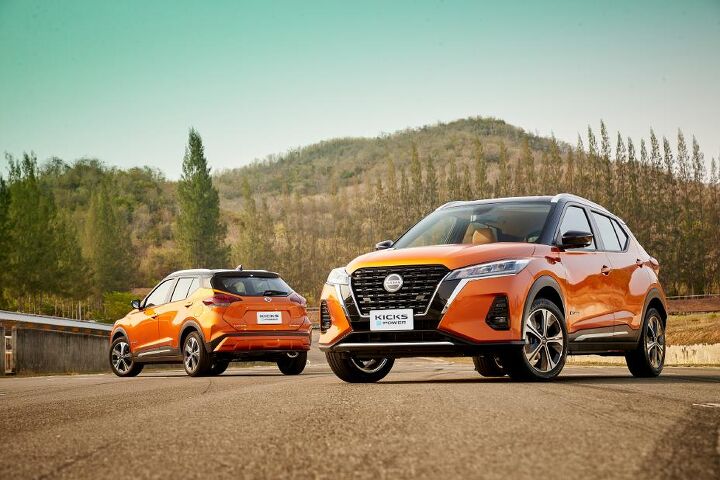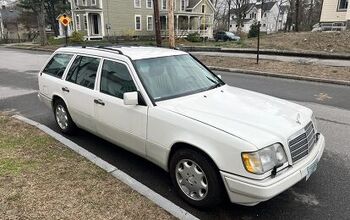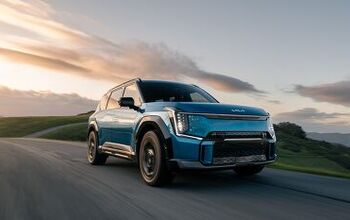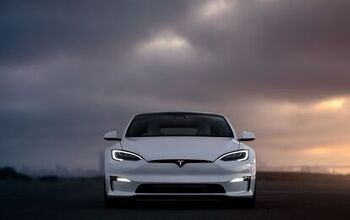Report: Nissan-Honda Tie-up Didn't Makes It to the First Date

Romance was not in the air when Japanese officials attempted to spark a merger between troubled automaker Nissan and its far healthier rival, Honda, a report in the Financial Times claims.
According to three sources, the effort to bring both automakers to the table — a high-level decision apparently originating in the Japanese Prime Minister’s office — went nowhere. Can anyone imagine a reason why Honda would turn up its nose at such an idea?
The attempt to bring both sides to the table for merger talks reportedly occurred at the end of last year, as Nissan floundered amid financial distress born of falling global sales and brash past decisions. The pandemic that came along early this year didn’t help things and effectively buried the idea. The thinking in Shinzo Abe’s office was that the bad blood between Nissan and alliance partner Renault could lead to a split — a danger that risked leaving “the Japanese company exposed.”
Who better to partner with than unencumbered auto giant Honda? Toyota, it seemed, had too many smaller tie-ups on the go already.
Indeed, FT claims the close relationship between Nissan and Renault and the capital structure they both share was a factor in the idea not getting off the ground. Renault owns a 43.4-percent stake in Nissan, with Nissan holding a 15-percent stake in the former company. As well, the French government holds a 15-percent stake in Renault.
It’s reported that the effort to merge didn’t even make it to the boards of either automaker, with Honda rejecting the idea outright. Nissan preferred to move forward with its own attempts to right the ship and repair the alliance.
In May, the automaker released a four-year plan aimed at solidifying Nissan’s fiscal foundation. The plan would see the automaker shrink in global reach and output; alliance partners Renault and Mitsubishi would also tame their ambitions, focusing instead on the markets and products that show the most promise.
As for the kiboshed merger talks, parts and platform compatibility between Honda and Nissan products would have proven another sticking point.
One former Nissan executive told FT, “A Nissan-Honda merger would only make sense to people who do not understand the car industry.”
[Image: Nissan]

More by Steph Willems
Latest Car Reviews
Read moreLatest Product Reviews
Read moreRecent Comments
- Teddyc73 Beautiful color, although the overused black wheels detract from it. It's nice to see a car in an interesting color instead of the also grossly overused dull greys.
- Master Baiter If you rear-end someone, it's your fault, period. If motorcycles need more time to stop, then riders need to increase their following distance.
- Master Baiter Until recently, virtually every cell phone and computer was made in China and no one seemed to care. The majority are still built there. I'm not a fan of tariffs as it just gives domestic makers a price umbrella to sell their garbage products to U.S. consumers at higher prices.
- Teleedle It would seem that if the Chinese made cars and trucks are ready to compete on the world market that they should be able to compete without the need for government help through subsidies. That's never going to happen with the mindset of their leadership. The rate at which they've transferred the ability to copy to the rate of their abilities to innovate isn't really astounding, but it is truly indicative of their inherent abilities to see through problems and overcome without a lot of fuss. They just have a different way that seems to continually baffle the Western mind. It only goes back a few thousand years. The rest of the world just has to catch up... Without tariffs, three Seagulls could be bought for the price of one loaded Toyota Corolla. I would settle for a nice small pickup truck that can get 30-35 mpg, if the Chinese want to build something with real durability and value. I'm sure they can do that for about $10-12k US, too, dumping them all the way to the bank. Neither Trump or Biden or Bugbrain want that, though. Restrictive 'targeted' tariff ideas indicate that they all want protectionism and the Chicken Tax to continue. The price of living in freedum in the non compete world... and the hallmark of one upmanship by the political class towards more and more expensive transportation related needs. All costs are ALWAYS passed onto the end consumer. Tariffs are the burden of the extra cost. Tariffs are punitive, remember... as intended. The political class is still living off the backs of their constituents throughout the world... same as it ever was.
- Theflyersfan One day, some of these sellers will come to the realization that cars are not houses and putting expensive upgrades into one doesn't equal a higher selling price down the road. $29,000? The only Challenger that has a chance of value down the road, and only with low miles, is the Hellcat.

































Comments
Join the conversation
The way things are going with Nissan, the only suitors could well be Gaijin companies. Hyundai would symbolize how far ahead a former Japanese imperial colony has leaped forward.
My first thought is that a Chinese company would be the ideal candidate to link up with Nissan, but I don't think the Japanese government would ever let that happen.